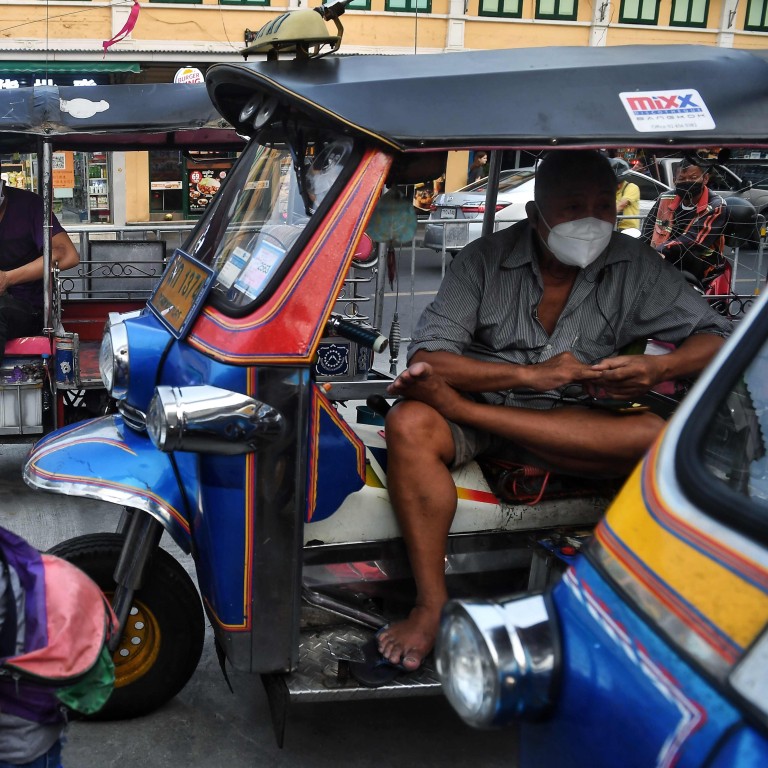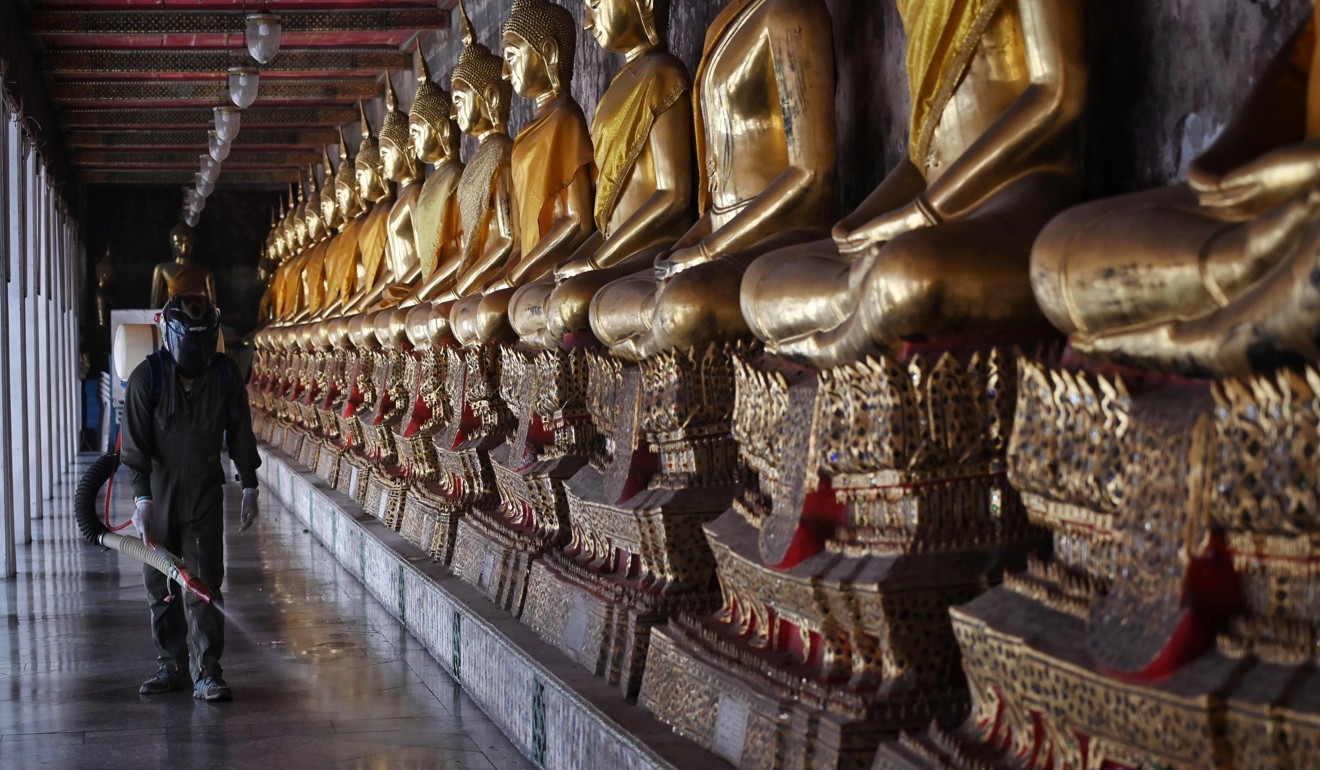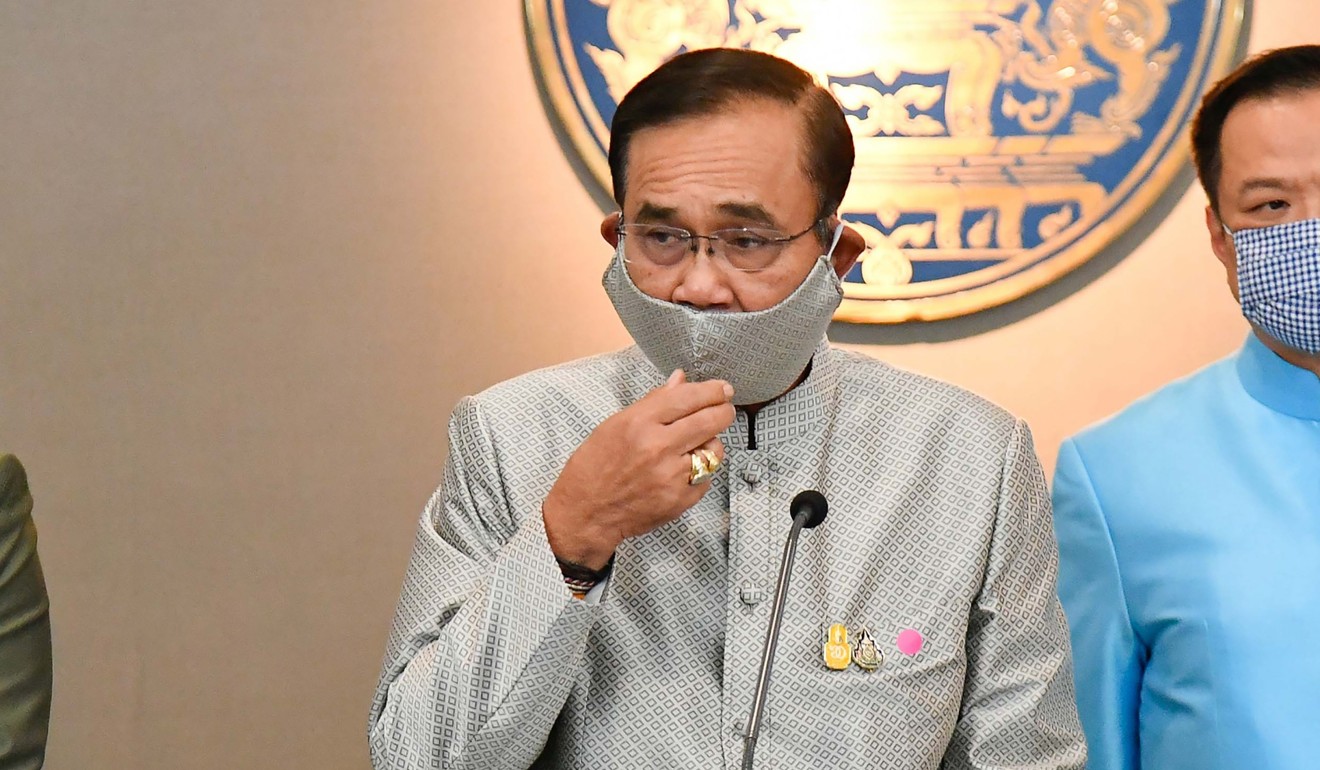
Coronavirus: Bangkok closes bars, schools amid surge in cases and public rumours of a lockdown
- Kick boxing stadiums, cinemas and bars in Bangkok and its surrounding areas will be closed for 14 days from Wednesday
- But Thailand’s flip-flopping on measures to curb the outbreak, along with a minister mask-hoarding scandal, have seen a deterioration of public trust
Thai actor Matthew Deane became the first celebrity in Thailand to contract the coronavirus after hosting a boxing match in early March, although the health ministry said he had become infected after meeting a friend who flew in from abroad.
South Korea’s coronavirus response is the opposite of China and Italy – and it’s working
The surge in local cases from such large venues has prompted the Thai government to announce the closing of recreational sites including stadiums, cinemas, bars, gyms and spas for 14 days in Bangkok and its surrounding areas, beginning on Wednesday.
Office workers have been encouraged to work from home, while schools and universities have been closed, as well as independent tutoring centres. Restaurants and department stores can stay open but must upgrade their screening efforts to include temperature checks as well as cleaning and disinfecting.
The traditional Thai New Year holiday, usually held from April 13-15, will be postponed until later in the year.
The measures were confirmed on Tuesday as Prime Minister Prayuth Chan-ocha delivered a televised address saying they were designed to delay a full-blown pandemic phase of the outbreak for as long as possible.

Thailand reported 30 new cases on Tuesday, bringing its total number of infections to 177. According to Dr Tawee Chotpitayasunondh, senior medical consultant for the health ministry, a full lockdown would be “an overreaction at this point” – but for others, the measure is hardly enough to battle the coronavirus.
Dr Thiravat Hemachudha from Chulalongkorn University’s Faculty of Medicine said tougher measures were needed for virus containment efforts to be effective.
The big questions over Malaysia’s coronavirus partial lockdown
“A lockdown is needed for at least 14 to 21 days,” he said, adding that closing public spaces in the capital would not help curb the outbreak in other parts of Thailand.
The suspension of economic activities from a lockdown – full or partial – would bring Thailand closer to the brink of a recession, according to economic think tank Krungsri Research, which revised its annual GDP growth forecast for the kingdom from 1.5 per cent to below 1 per cent as the outbreak worsened.
“We may need a sudden stop of economic activity, like China, as it proved effective in tackling the spread,” Somprawin Manprasert, chief economist at Bank of Ayudhya, told Bloomberg. “With such a disruption, the economy will likely contract this year.”
Yet the government has been inconsistent in its preventive measures. Last week, it backtracked on its suspension of a visa-free and visa-on-arrival policy for jurisdictions including Hong Kong, after realising that the freeze could not be fulfilled due to the presence of certain bilateral agreements.
However, a requirement for foreign travellers to provide proof of their health, an application to track their locations and a mandatory quarantine if they travel from a designated infection zone remain in place.
Thailand had quarantined Thai workers returning from South Korea at more than 30 government facilities across the country, before last week sending the workers to their provinces for home quarantine.
This flip-flopping has seen trust in the government deteriorate and has sparked widespread confusion. In a speech on Monday night, Prayuth emphasised the need for calm after a weekend of panic buying in Bangkok, assuring the Thai public that there were sufficient medication and health care facilities to handle a larger outbreak in the future.

While he ended his short speech by confirming that Thailand as a country would “win this together”, some Thais were not impressed. As one Twitter user posted: “Thai people want to know the government’s measures to handle what is to come in the future, not be told what we already know.”
Prayuth’s administration is not only battling the ailing economy and low public trust in the face of the Covid-19 outbreak, it is also battling a scandal. Last week, cabinet minister Thammanat Prompao was alleged to have been involved in hoarding face masks, a charge he has denied.
Coronavirus: Philippines receives new testing kits, prioritises pneumonia patients
“The coronavirus outbreak reveals the nature of this government,” said Titipol Phakdeewanich, a political scientist at Ubon Ratchathani University. “Most people are not confident about the government’s ability to handle the outbreak. They think the government is incompetent even in making sure there is enough [hand sanitiser] and face masks for everyone.
“With the mask scandal, they have become more paranoid because they don’t trust the government.”

